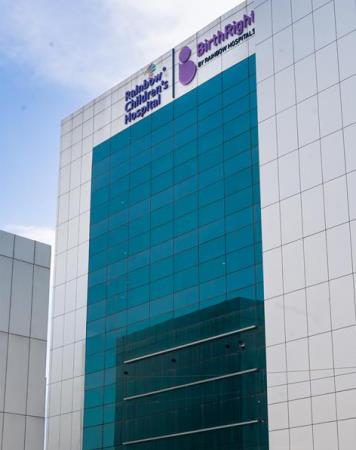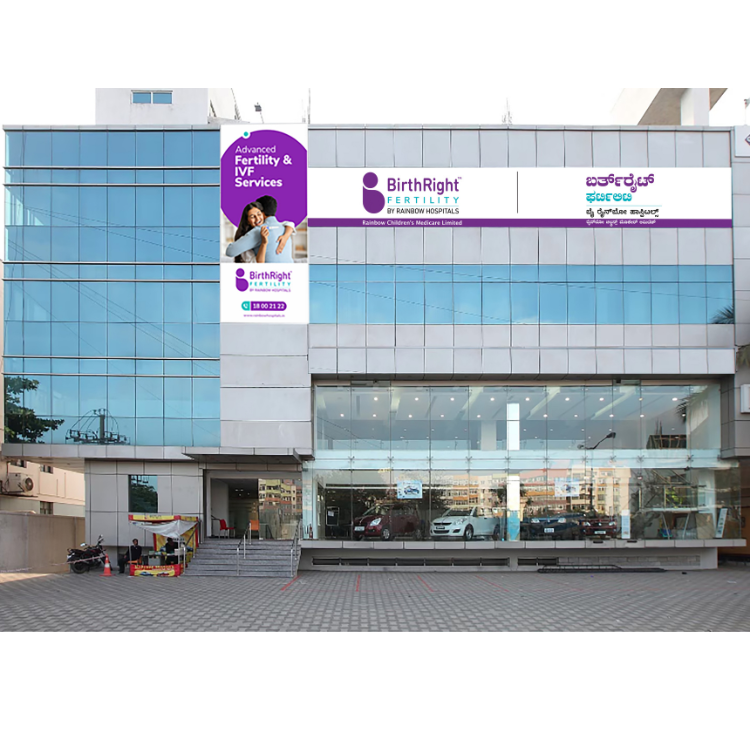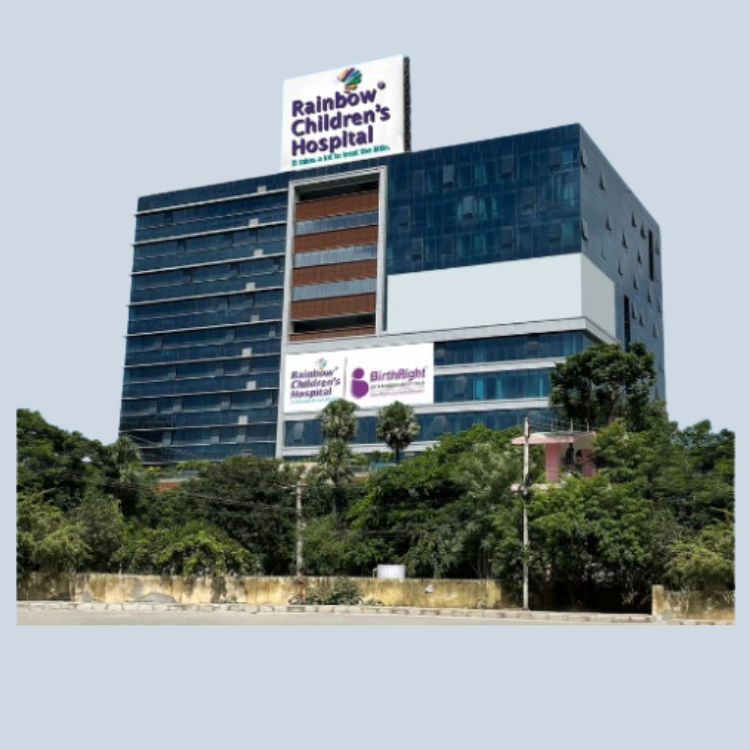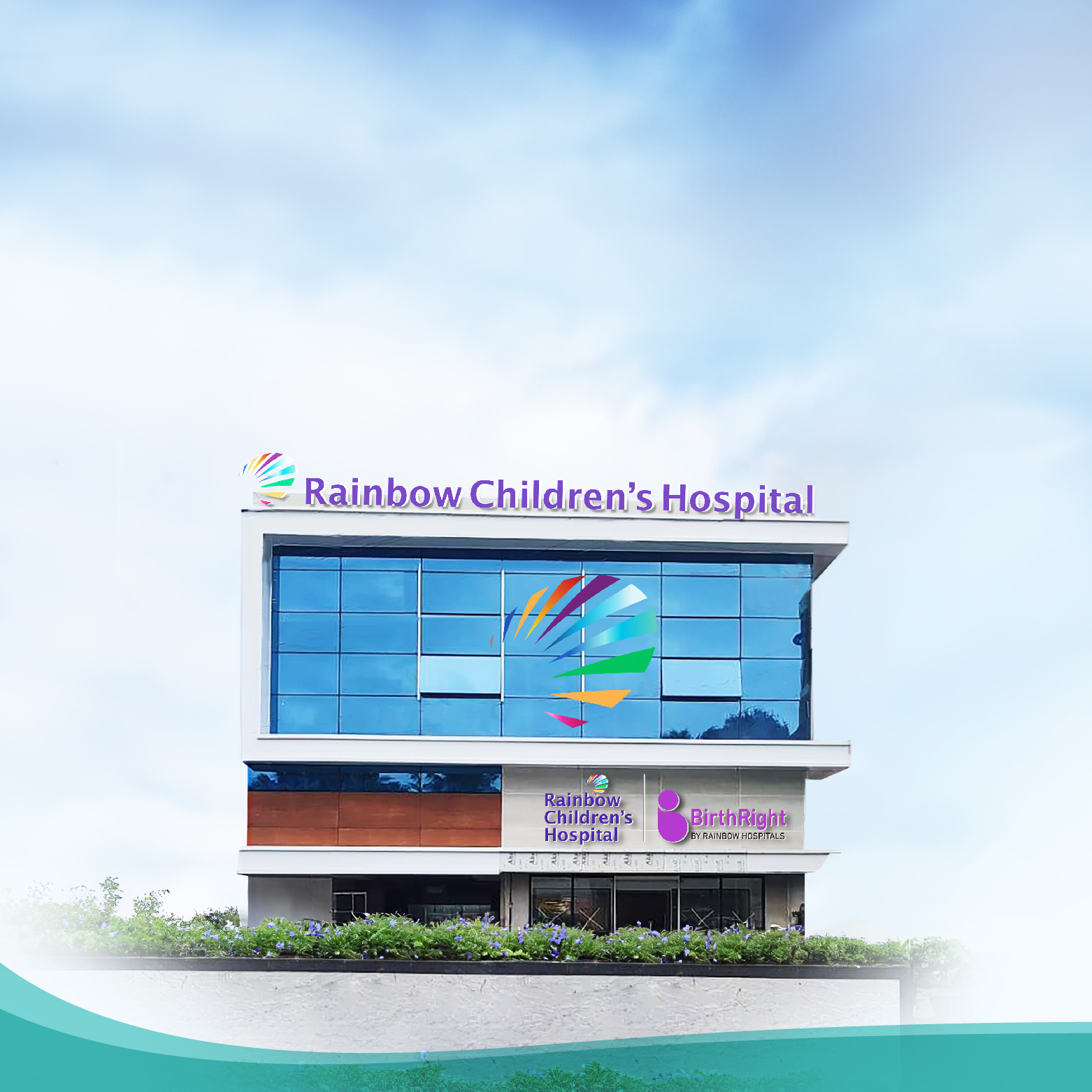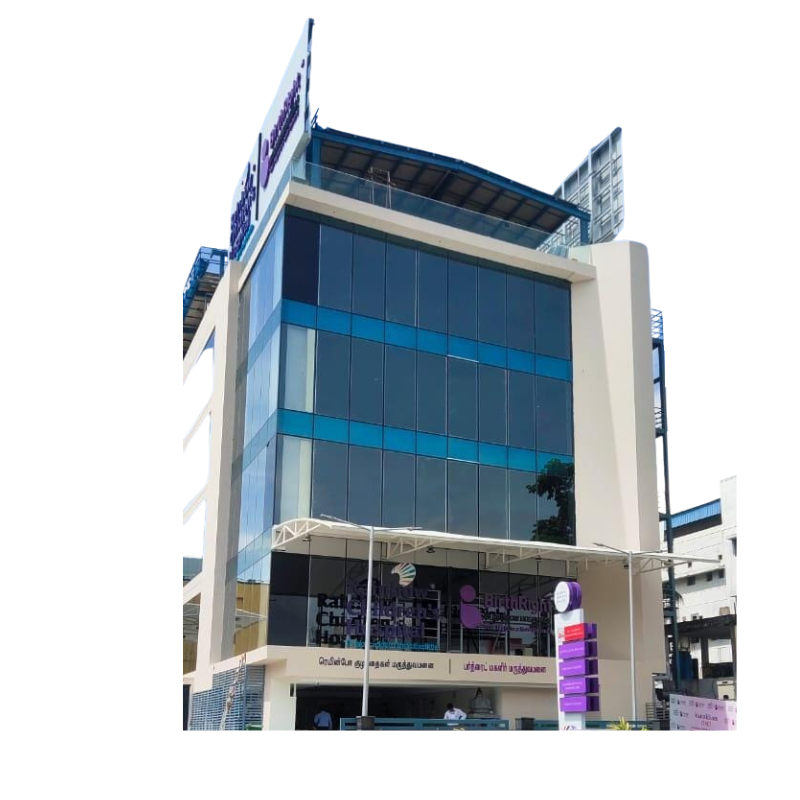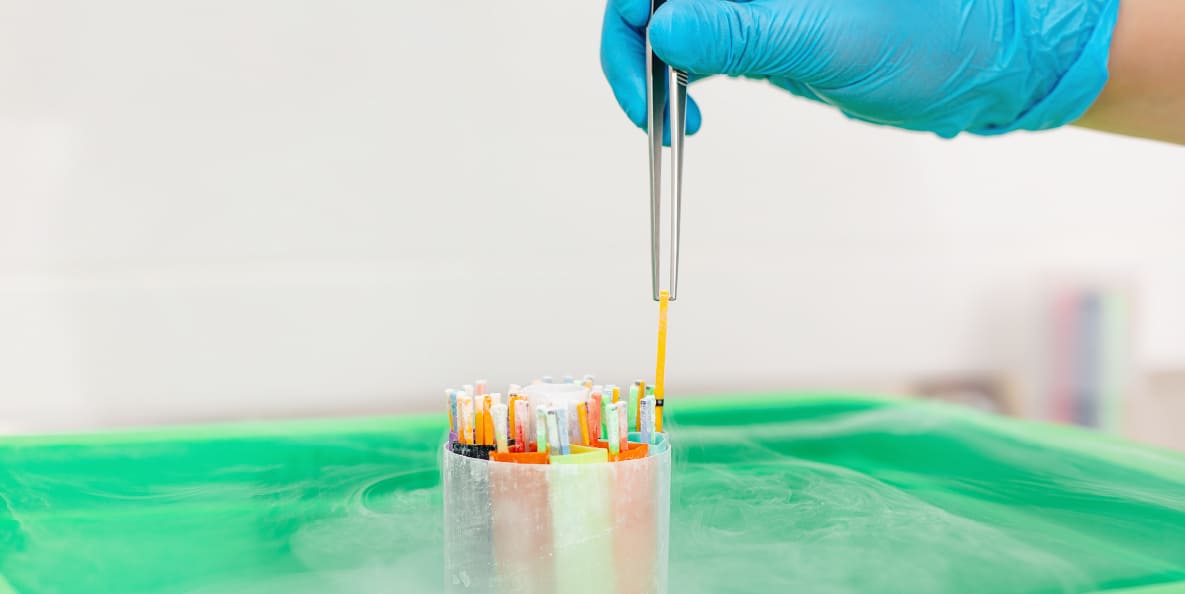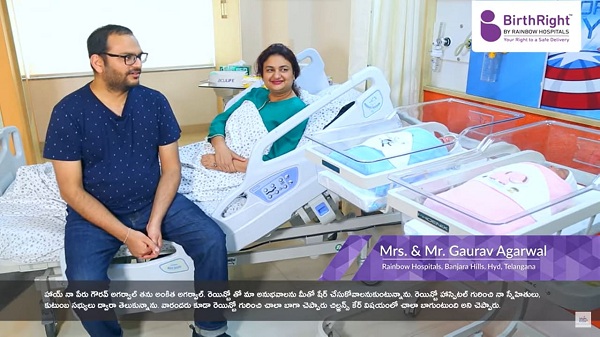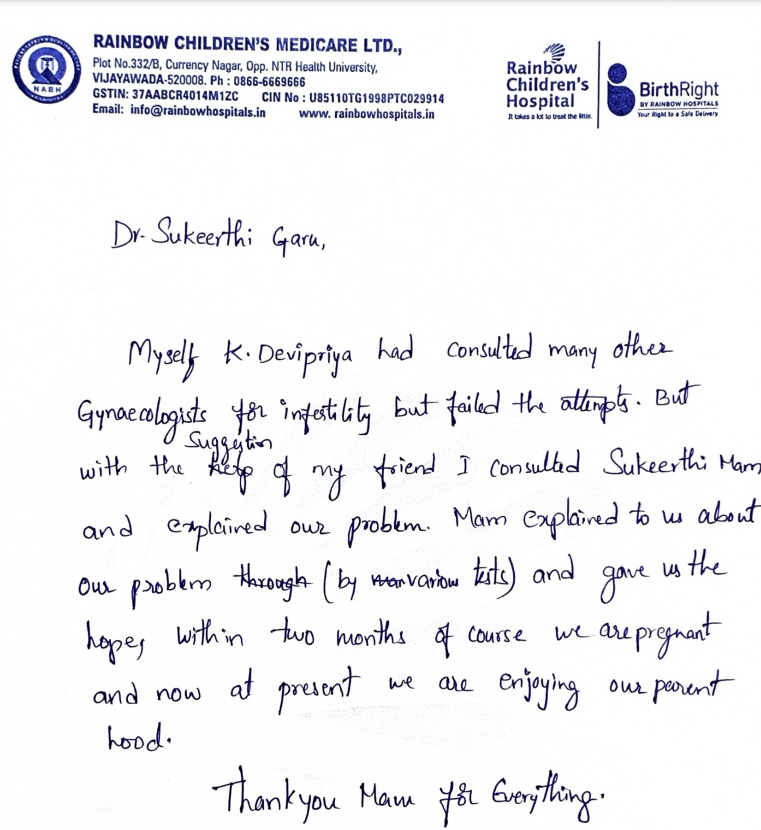Seamless support from diagnosis to post treatment care
The best solution for absent/irregular ovulation!
There can be various causes of infertility, and insufficient ovulation is one of them. The therapy known as ovulation induction is often used in such cases to stimulate the development and release of eggs. Fertility drugs are used to induce ovulation in women, particularly those who have irregular menstrual cycles. Ovulation induction is recommended for women who are not ovulating, particularly those with conditions such as polycystic ovarian syndrome (PCOS). BirthRight Fertility by Rainbow Hospitals, with its team of doctors, specialists, and fertility experts, offers personalized fertility treatments to stimulate ovulation and enhance the likelihood of pregnancy.
Around 30-40% of women with infertility issues also have ovulation problems. Women who don’t ovulate or infrequently ovulate are the most likely to benefit from undergoing ovulation induction therapy. Ovulation induction might also be used in women who ovulate regularly but have unexplained infertility to provide them with better chances of conceiving. The therapy is also used when you undergo an IVF cycle for maximizing the production of eggs.
The services provided for ovulation induction at BirthRight Fertility by Rainbow aim to not only prompt ovulation but also increase the number of mature eggs in each cycle, improving the chances of conception. This process, known as controlled ovarian hyperstimulation or superovulation, involves the administration of follicle-stimulating hormone through injections.
For individuals with irregular menstrual cycles, monitoring through ultrasound or hormone assessments helps identify the fertile window, thereby enhancing natural conception chances. Before initiating ovulation induction, a series of tests are conducted to determine the underlying cause, including ultrasounds of the womb and ovaries, as well as blood tests measuring hormones such as thyroid, LH, FSH, testosterone, prolactin, and other androgens. Additionally, assessments of ovarian response to drug treatment are performed.
In cases where ovulation doesn't occur naturally, medications are administered at the beginning of menstruation to stimulate egg production. If oral medications prove ineffective, fertility injections may be recommended to stimulate egg production in the ovaries. BirthRight Fertility by Rainbow's experienced doctors guide patients through each step of the process, ensuring comprehensive care and support throughout the ovulation induction treatment.
..
Find a Doctor
Expertise you can trust, Meet our esteemed doctors who bring exceptional knowledge, compassion, and innovation to provide top-notch care for your health and well-being.
Our Hospitals and ClinicsOur Hospitals and Clinics
Rainbow Children's Hospital stands as a testament to the hospital's continual pursuit of excellence and innovation, providing specialized care for women and children.
Request a Call back
Tap to Fill FormRequest a Call back
Blogs
Discover our most recent health articles provided by our reliable experts.
What Are People Saying About Us
Embark on a journey of inspiration and hope with our patient success stories, complemented by informative videos from our dedicated doctors.
Ovulation induction treatment includes taking an oral or injectable medicine to trigger regular ovulation. The medicine is often taken at the start of the menstrual cycle, and ultrasound is used to track the body's reaction over the course of the cycle. BirthRight Fertility by Rainbow Hospitals has one of the best fertility treatment facilities in India and offers high success rates for ovulation induction treatments. It has a number of fertility centres across India that offer the best ovulation induction treatments in cities like Hyderabad, Bangalore, Chennai, Delhi, Vizag, and Vijayawada.
The process of stimulating ovulation in women having absent or irregular ovulation with the use of medications is known as ovulation induction. Recent studies show that 25-30% of women having infertility have issues with ovulation.
When ovulation is unpredictable or takes place once every 35 days, it is said to be irregular. Oligo ovulation is when the duration or interval of ovulation is entirely unpredictable. Anovulation is when ovulation doesn’t take place at all. Fertility is impacted by ovulatory issues since it makes ovulation less predictable and may even potentially impact the availability of an egg for fertilization.
Intrauterine insemination (IUI). The absence of ovulation may also be symptoms of another fertility problem. In such cases, treatment of the underlying condition can help restore fertility and normal ovulation. The specialists at the fertility clinic will ensure that all your queries regarding how to induce ovulation are cleared.
A variety of hormone-based medications are used for Ovulation Induction therapy. These medications regulate the reproductive hormones of a woman to improve the chance of ovulation. Some medications that are commonly used include:
- Clomiphene citrate: It is used for stimulating ovulation in women having normal pituitary hormones but the usual monthly hormonal changes do not occur. Its brand name is Clomid, which is what most patients know it by.
- Aromatase inhibitors: The indications for this medication is similar to those for clomiphene citrate. It is particularly effective in patients having PCOS. It is commonly known as Letrozole or Femara, which its brand name.
- Insulin-sensitizing agents: These medications are used in patients with PCOS having evidence of prediabetes or diabetes. It is commonly known by the name of metformin.
- Gonadotropins: This consists of two hormones which can be injected – FSH (follicle-stimulating hormone) and LH (luteinizing hormone). These hormones are produced normally by the pituitary gland and are known to help the development of the egg. Since gonadotropins stimulate the development of egg powerfully, they need to be monitored more frequently than letrozole and clomiphene citrate. Multiple pregnancies is a risk associated with this medication along with OHSS (ovarian hyperstimulation syndrome), which causes the ovaries to be swollen and overstimulated.
In other cases, ovulation can resume naturally in another condition, such as hypothyroidism or obesity is treated.
The process of stimulating ovulation in women having absent or irregular ovulation with the use of medications is known as ovulation induction. Recent studies show that 25-30% of women having infertility have issues with ovulation. Fertility is impacted by ovulatory issues since it makes ovulation less predictable and may even potentially impact the availability of an egg for fertilization. When ovulation is unpredictable or takes place once every 35 days, it is said to be irregular and ovulation induction treatment can help in this case.
BirthRight Fertility by Rainbow Hospitals offers the best ovulation induction treatments for all women to help with ovulation and raise the chances of getting pregnant. Each diagnosis and treatment approach is specially taken up to cater to your particular problem.
Not everyone needs hormone injections, only those who do not respond to tablets will need injections.
In women with anovulatory cycles, ovulation induction for 6 months results in 40% pregnancy rate.
BirthRight Fertility by Rainbow Hospitals has a highly experienced team of fertility specialists who ensure every diagnosis is accurate and ovulation induction treatment plan ensures a high success rate.
Injectable gonadotropins (FSH/ HMG) are another commonly used medications used for ovulation induction. The cycle begins with a baseline ultrasound on day 2 of the menstrual cycle prior to starting any injectable medication. Injectable medications are started on day 2 and are continued for 6 -10 days. During that time, you may require 3-4 ultrasounds to monitor the development and pace of the follicle growth. Once the lead follicle(s) measure at least 16-18 mm in diameter, an injection of human chorionic gonadotropin (HCG) is given which causes ovulation. Intrauterine insemination (IUI) or intercourse will be performed on the following 2 days after the injection of HCG.
Some women may experience bloating, nausea, breast tenderness, period like cramping. Uncommon side effect of hyperstimulation can occur wherein that cycle is abandoned. Risk of multiple births (i.e. twins or greater) is still increased slightly by this treatment.
OHSS may be caused by medications used for ovulation induction. The side effects include:
- Nausea
- Bloating
- Headaches
- Hot flashes
- Loss of breath
- Weight gain
- Blurry vision
- Tenderness in the pelvic region.
In general, ovulation induction is one of the most common treatment options for women having infrequent or absent ovulation. Women who have disorders like PCOS, which interrupts ovulation, can also make use of ovulation induction treatment.
Ovulation Induction therapy is also commonly used along with IVF or in vitro fertilization to stimulate the release of multiple mature eggs to be collected and used in the laboratory for fertilization. This process is known as controlled ovarian hyperstimulation.
Our healthcare specialists look for certain factors to determine whether ovulation induction should be used or not. These include:
- Disorders like PCOS can have a direct impact on normal ovulation.
- Hormonal levels of a woman, particularly the presence of LH, AMH, and FSH.
- Disorders that have an indirect effect on ovulation, such as eating disorders, obesity, and thyroid disorders.
- The amount of exercise done by the woman
We may even try superovulation if the woman continues to have abnormal ovulation despite ovulation induction treatment.
BirthRight Fertility by Rainbow Hospitals has multiple fertility centers that provide ovulation induction treatments in the cities of Hyderabad, Bangalore, Chennai, Delhi, Vizag, and Vijayawada.
Quick Links
- Best Ovulation Induction Doctors In Hyderabad
- Best Ovulation Induction Doctors In Bangalore
- Best Ovulation Induction Doctors In Delhi
- Best Ovulation Induction Doctors In Chennai
- Best Ovulation Induction Doctors In Vijayawada
- Best Ovulation Induction Doctors In Vizag
- Best Ovulation Induction Doctors In Kondapur
- Best Ovulation Induction Doctors In Banjarahills
- Top Ovulation Induction Doctors in India
- Top Ovulation Induction Doctors In Kondapur
- Ovulation induction doctors near me in Kondapur
- Ovulation induction Doctors near me in Banjarahills
- Best Ovulation Induction treatment at Anna Nagar, Chennai

















